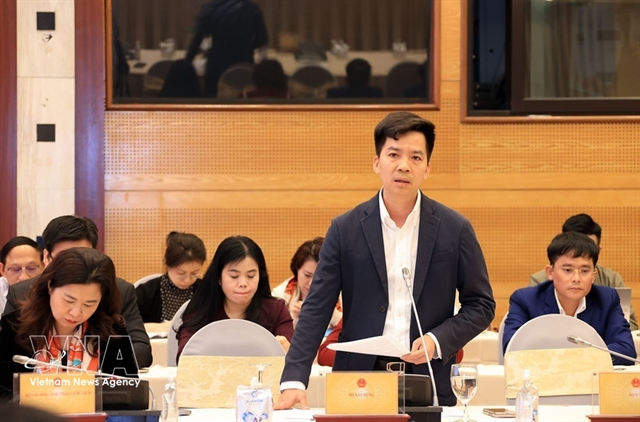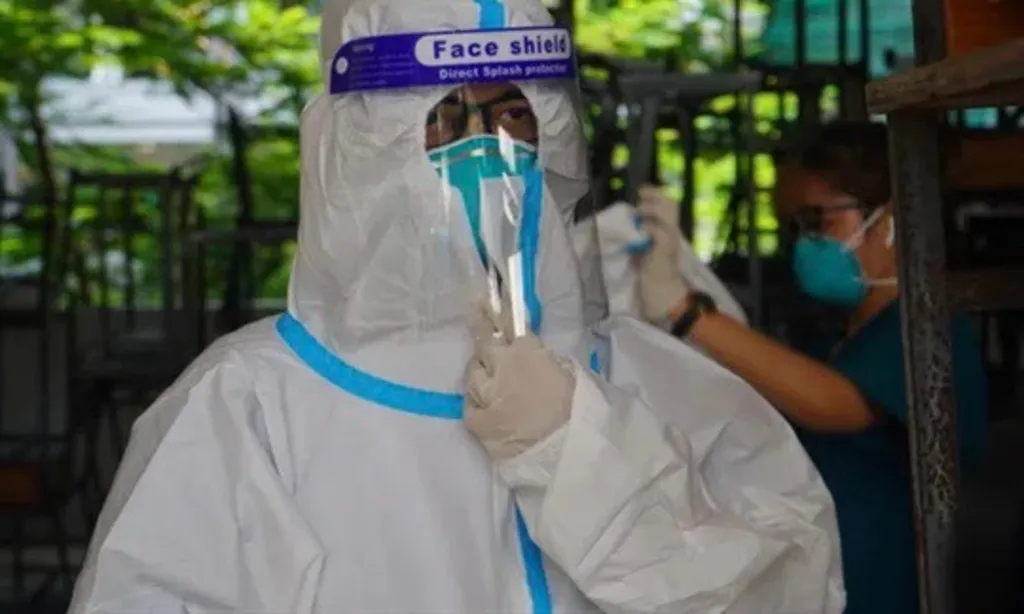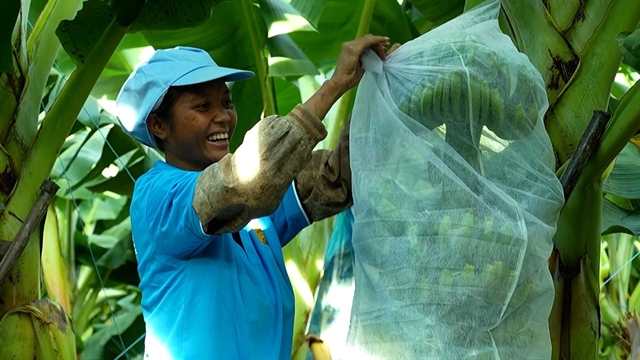 Society
Society

 |
| Lê Tấn Sang had to wear protective suits the whole time he volunteered to combat the pandemic. — Photo Lê Tấn Sang |
{ "id": "Hy_yq1tVJk", "type": "myToolImages", "data": { "data": "" } }
HCM CITY — Lê Tấn Sang is a senior student at the Phạm Ngọc Thạch Medical University in HCMC and a volunteer fighting the pandemic. He shared his story of overcoming adversity to help save lives during the darkest hours of last year's outbreak.
"Auntie, please just hold on for a little longer. Breathe slowly and keep calm, we are so close to a hospital!", said Sang in the emergency van, as the breath of his patient slowly dissipated.
Calls were made to many hospitals but end in sighs as the ICU beds were no longer available. Sweating all over, Sang tried his best to encourage himself and encourage the patient.
"We reached the hospital at 5 am, seven hours after we got the patient.", said Sang, "But at noon, the patient's family phoned us to inform us that she had passed away.
The pandemic claimed more than 20,000 lives in HCMC, but they are more than mere statistics.
The 20,000 casualties are 20,000 dreams never fulfilled, 20,000 families without relatives. And Sang understood it fully, having been hard at work from July through October 2021.
"In my early days as a volunteer, 9 out of 10 of my patients died," said Sang. "It took me a year to overcome the grief and the pain, but those memories will stay on and haunt me forever."
The feeling of hopelessness when seeing a patient flatline before his very eyes for Sang was unforgettable.
When the outbreak started in HCMC in June, Sang was eager to join with his bravery and knowledge as a medical student. He was first a test centre officer, then a hotline responder when a case happened that rocked Sang to his core.
"When I was a hotline responder, a case called for mechanical ventilation. We rushed to the scene, but nobody open the door.", recalled Sang.
"I felt that something was wrong, so I broke my way in and saw the patient dead in the bathroom. The patient was pale all over his body. He died at home before we could get him to the hospital.
"At the moment I seem to have given up. My hands were down and I knew if we could get there sooner, the patient could have been saved," said Sang.
When the HCMC Department of Health and 115 Emergency Centre collaborated with Phạm Ngọc Thạch Medical University to organise patient delivery through taxis, Sang did not hesitate in joining.
"For patients, one more second means a lot. That's why I decided to join," said Sang.
With volunteer rides from taxi drivers and emergency vans, Sang and his colleagues got more patients to the hospital in time, but the pain of patients dying kept on coming.
Once there was a severe case who was too heavy to move. Sang and another volunteer had to take turns carrying the patient down three floors. With the protective suit on and sweat all over, Sang tried to save the patient.
The oximeter, however, read 65 per cent, and Sang knew that it was over. The patient died thirty minutes later.
"The worst thing is that you know your patient is dying, but there's nothing more you can do", said Sang.
"The medical knowledge I studied, I know them very well, but when it comes to reality, I understand how destructive COVID is.
"On my first days, I was emotional, depressed, and filled with grief. But soon after, I overcame them," said Sang.
The young medical student did not give up. He kept on helping patients for three months, trying his best to keep them alive.
Although his family dissuades him from participating, Sang did not listen and carried on his job, because for him: "If everyone is selfish, nobody would help anybody in these times."
But it's not all sad stories for Sang. His relentless efforts sometimes paid off and saved the lives of many patients.
"There was this patient who was so scared and took 10 antibiotic pills. The patient then entered liver failure," recalled Sang. "I went to the hospital with the patient and did a nurse's job, who helped me save the patient in time. The patient recovered after a week and after hearing that news, I cried like a child."
"Another time, I had to squeeze the Ambu bag for three hours, until the vital signs returned to the patient," said Sang. "My hands were red, my sweat filled the bedsheets, but the patient's joy gave me strength to continue."
"A teacher once told me that every doctor has souls that follow him. Do your best to not be ashamed of your heart. Don't let the pain of the person who passed away affect you, and focus all your attention on healing the next person," said Sang, "With that advice, I want to push myself further on this path. I will never give up." — VNS




